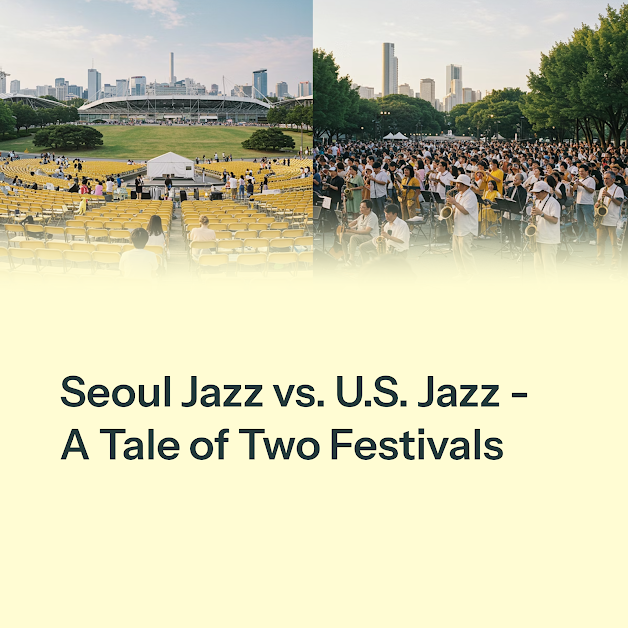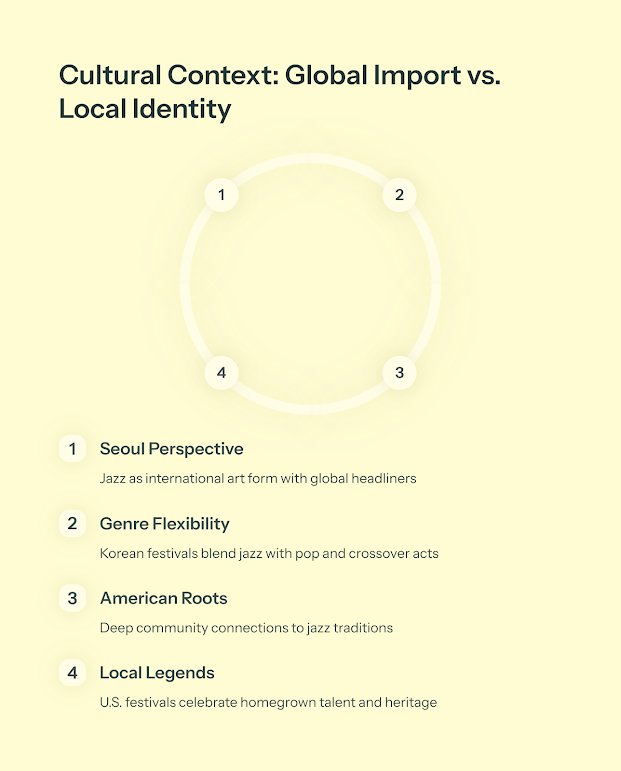After serving in the U.S. Army and returning to Korea, I found that jazz doesn’t just sound different here—it feels different
Setting & Atmosphere – Parks vs. Streets, Formality vs. Flow
In the U.S., my first jazz experiences were on the streets of New Orleans and in open city festivals—loud, loose, and overflowing with soul.
In contrast, Seoul Jazz Festival is held in curated venues like Olympic Park, with ticketed seating, a clear schedule, and a noticeable sense of polish.
It’s the difference between jazz as a street celebration versus jazz as a well-produced performance.
Both are beautiful—but one feels like freedom, the other like finesse.
Audience Behavior – Reverent Focus vs. Rhythmic Freedom
At Seoul Jazz Festival, the audience listens—really listens.
There’s a quiet respect that reminds me of a classical concert back in the U.S.
Phones are low, conversations are hushed, and the focus is intensely on the stage.
In U.S. festivals, it’s common to see people dancing, shouting back lines, or walking around with beers in hand while the music plays.
In Korea, the vibe is more inward. In the States, it’s outward expression.
Artist-Audience Interaction – Distance vs. Dialogue
In U.S. jazz spaces, artists often talk directly to the crowd, crack jokes, call-and-response mid-song—it’s an open conversation.
At Seoul Jazz Festival, there’s a bit more distance.
Artists play, they bow, and they speak briefly (often through translators).
As a veteran used to command presence and audience feedback, I found the Korean model respectful but restrained.
It felt more ceremonial, whereas in the U.S., jazz felt like a jam session between strangers.
Cultural Context – Jazz as Global vs. Local Identity
In America, jazz is a part of the country’s cultural DNA—
born of struggle, improvisation, and rebellion.
In Korea, jazz is imported, adapted, and appreciated as an art form,
not a cultural backbone. That difference changes everything.
There’s curiosity here, maybe even reverence,
but it lacks the raw familiarity you feel in Chicago or New York.
It’s not a weakness—it’s just a different kind of respect.
Final Thoughts – What These Differences Taught Me About Home
As a Korean-American who served in uniform,
I’ve always lived between structure and soul.
Jazz reflects both—it’s discipline and improvisation, freedom and form.
Seoul Jazz Festival reminded me how much culture shapes sound.
And how beautiful it is to experience the same music interpreted through two hearts—mine, and the one beating in this country I now call home.






